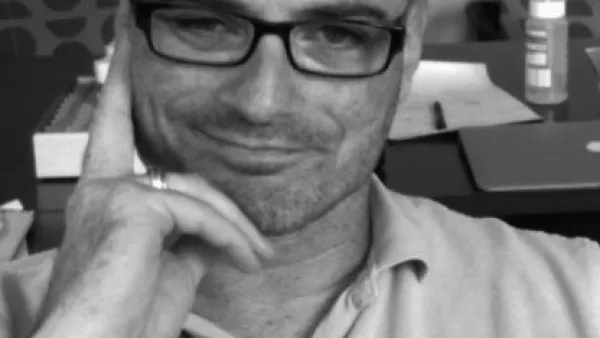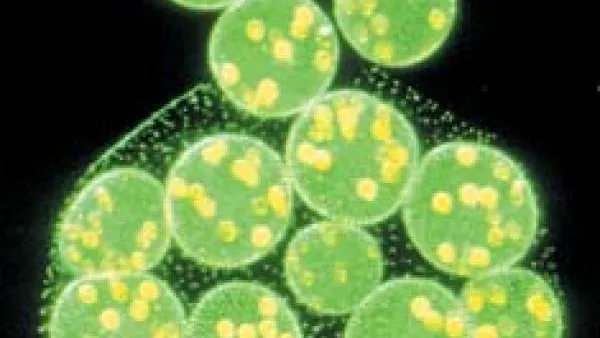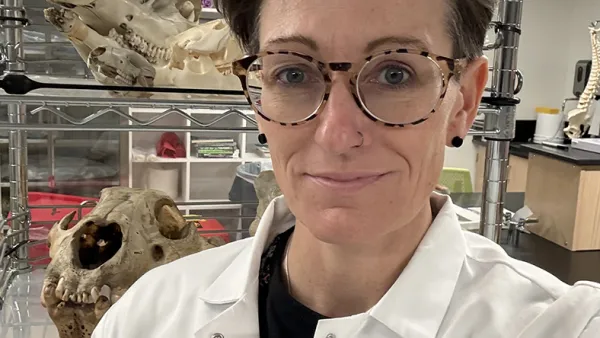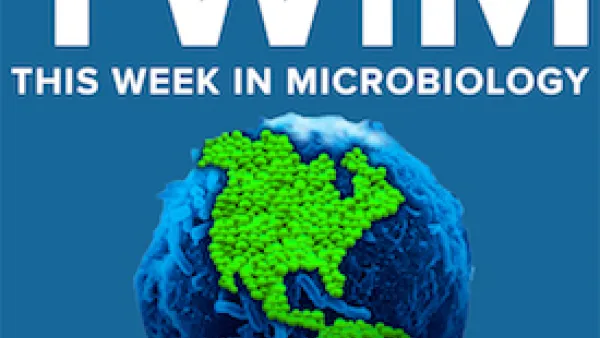Following a diverse array of experiences, Assistant Professor of Biology Liz Mallott found her niche in the field of gut microbiome research.

in northeastern Costa Rica.
Liz Mallott was born in Pittsburgh, Pennsylvania, but spent most of her childhood in the town of Martinsburg, West Virginia. Growing up on a small farm in the middle of nowhere allowed her the freedom to play outside most of the time, fostering her interest in nature. She cites the 1980s PBS show Wild America as another source of her lifelong interest in natural history. The show explored various large mammals in North America and made her realize that it was possible to have a career studying animals in their natural habitat and get to be outside all day!
Mallott completed undergraduate degrees in Biology and Music (she plays piano) at Grinnell College in Iowa. During and after her undergrad years, she wanted to explore different options, so she found a variety of seasonal fieldwork positions, followed by graduate school, two postdocs, and a visiting professorship.
The first experience was an NSF REU program during her undergraduate years. She studied bats via long-term acoustic monitoring in caves near Juneau and Ketchikan in Alaska. Then she was a Wildlife Intern at Salt Plains National Wildlife Refuge in Oklahoma through the Student Conservation Association. This research involved lots of counting of animals such as lizards, birds, and deer, knowing population sizes is important for wildlife management. She did some field work at Mississippi State University doing mark-recapture studies in pine plantations to look at how management practices influenced small mammal populations, followed by field work at Marojejy National Park in Madagascar, on a project assessing lemur population sizes in remote areas.

capuchin adults at La Suerte Biological Field
Station in Costa Rica.
An internship at NIH in a primate behavior lab led her to decide that she wanted to have the ability to ask questions she was interested in, instead of working on projects that other people developed. She went back to school, completing her doctorate at the University of Illinois, Urbana-Champaign, where she worked in the lab of primatologist Paul Garber, and did some work in Ripan Malhi’s molecular anthropology lab, which primarily focuses on ancient DNA. That's when she stumbled into and fell in love with microbiome research.
Mallott also completed a postdoc in Katie Amato’s lab at Northwestern University, followed by a visiting professorship at Dartmouth College to gain teaching experience. She taught on the topics of primate behavior and ecology, introductory biological anthropology, ancient DNA, and evolutionary medicine. Finally, she completed a postdoc in Seth Bordenstein’s lab at Vanderbilt University.
After many diverse experiences, Mallott is happy to settle into the WashU community, where she will be able to do world-class research and get to teach smart, motivated students. An added bonus is the strong history of microbiome work in Jeff Gordon’s lab (among others), who was one of the early pioneers in gut microbiome research.
She loves teaching undergraduates and will be co-teaching microbiology in the spring with Petra Levin, as well as developing a new course on the biology of climate change with fellow faculty members. “Students ask questions that make me think about research in ways that I wouldn't have otherwise. They also get really excited, and that enthusiasm is contagious. It makes me remember why I was excited about science in the first place!” Mallott said.
The Mallott Lab studies how the environment influences the gut microbiome and what consequences the resulting variation has on human health and non-human primate fitness and health. The research is focused on the impacts of environmental pollutants on the human gut microbiome and how exposure to environmental pollutants might increase inflammation, which can lead to an increased risk of cardiovascular and metabolic diseases.
In order to carry out this research, “you get people to give you their poop,” Mallott explained. Commode collectors or “toilet hats” are provided for people to collect specimens and turn them in to the lab. People enroll in a study, and scientists collect data to learn about their health, location, and lifestyle habits, as well as collect their specimens. One study takes place in rural Mississippi, and a more recent one in Cahokia Heights, Illinois. Mallott also studied non-human primates in Costa Rica, where she followed them around, observing their behavior, collecting data and fecal samples. She still works with collaborators in the area who collect data and samples and share them with her lab.
One finding of the Mallott Lab is that there are huge shifts in the composition of the gut microbiome during pregnancy and lactation in nonhuman primates. Digging deeper revealed that those shifts are related to changes in progesterone concentrations. Though the specific mechanism is unknown, there's an association there and may influence female energy balance. Researchers are looking at how the environment, diet, and peer behavior impacts this.
Another finding is that environmental pollutants impact the human gut microbiome, disproportionately affecting underserved communities. “In humans, what we found so far in the United States is that there are differences associated with race, ethnicity, and the composition of the gut microbiome. But we know that race and ethnicity aren't biological variables, so there are other variables that race and ethnicity are acting as a proxy for things like social environmental determinants of health, and the impacts of structural racism and other structural factors. Those variables are actually impacting the variation," Mallott said.
“Likely one of the big ones is environmental pollutant exposure. Exposure to environmental pollutants varies greatly based on your self-identified race or ethnicity in the United States, and non-white people are much more likely to be exposed to high rates of air pollution and toxins in the soil,” she explained.
The Mallott Lab has two major goals. Once the impact of environmental pollutants is documented, the next step is to see if there are any beneficial exposures to mitigate the effects of environmental pollutants, so scientists can think about some interventions. Second, if they can show a known negative health impact at a low rate of exposure to environmental pollutants in soil and water, scientists can get state regulatory agencies to make stricter regulations, which helps everyone in the long run.
Outside of work, Mallott spends a lot of time riding her bike. Previously, she’s been involved in local nonprofits that teach bike repair skills to help people fix their own bikes. She enjoys exploring all that St. Louis has to offer with her family including many nice outdoor breweries, Forest Park, the St. Louis Art Museum, and her young child’s favorite, the St. Louis Zoo.
Learn more about Liz Mallott’s research: https://mallott-lab.github.io/.



